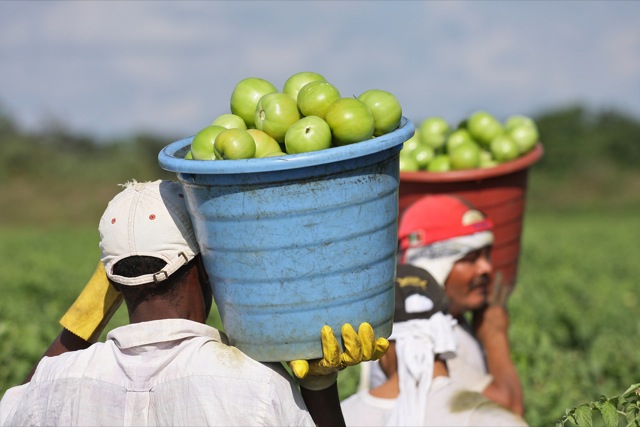 Problem: Farmworkers are paid an average of 50 cents for every bucket of tomatoes they pick and haul to the field truck throughout the day. Workers heave filled buckets up to a “dumper,” a field-level supervisor whose job it is to oversee the proper filling of buckets, dump the filled buckets into the truck, and pay the worker with a token worth 50 cents to be turned in at the end of the day.
Problem: Farmworkers are paid an average of 50 cents for every bucket of tomatoes they pick and haul to the field truck throughout the day. Workers heave filled buckets up to a “dumper,” a field-level supervisor whose job it is to oversee the proper filling of buckets, dump the filled buckets into the truck, and pay the worker with a token worth 50 cents to be turned in at the end of the day.
While this may sound routine and mechanical, the definition of “properly filled” has been a source of tension for as long as anyone can remember. According to an unwritten rule enforced by dumpers throughout the industry, for a bucket to be considered sufficiently filled, it must be “cupped,” i.e., overfilled with tomatoes piled well over the rim (the photo on the right was taken three seasons ago and shows typically overfilled buckets in line to be heaved up to the field truck). This “copete,” as it is called in Spanish, is in effect a systematic form of wage theft, as for every ten buckets a worker would haul to the truck, he or she would have in fact filled the equivalent of eleven buckets, because the ten “copetes” added up to roughly one full — unpaid — bucket.
Solution: The CIW’s Fair Food Code of Conduct addresses this practice by eliminating the “copete,” so that workers get paid for for every bucket they pick. Here is how the change is defined in the document that has been developed this season to serve as guidance for growers for implementing the Code of Conduct:
“Policy 3.1
Cupping of buckets is not permitted under the Code… A bucket is cupped if any tomato in the bucket is fully above the rim of the bucket.”
Below are two pictures, the one on the left showing the old, unofficial standard (“cupping”), the one on the right the new Fair Food standard:
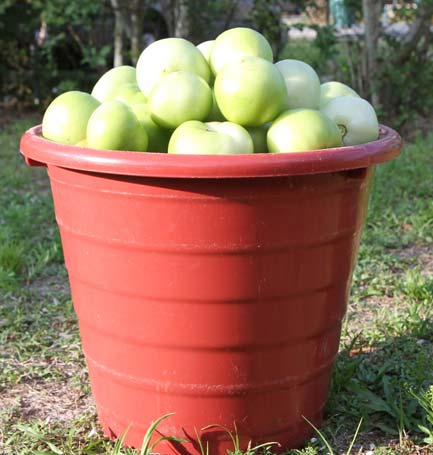 Cupped |
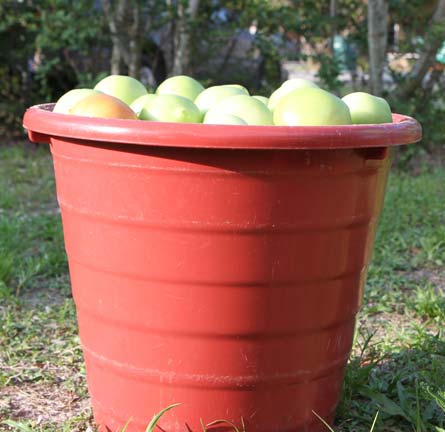 Fair Food standard |
The new Fair Food standard is already being implemented on the farms that are part of the Working Group (which is a collaboration of tomato industry leaders and the CIW on a select number of farms this season to establish the systems and protocols for implementation of the Fair Food Code of Conduct throughout the industry next season).
The two sets of two pictures below show the application of this change in the fields. The first set is from 2008, before the new standard existed. The second two pictures are from this season on the Immokalee farm of Pacific Tomato Growers, one of the members of the Working Group.
2008:
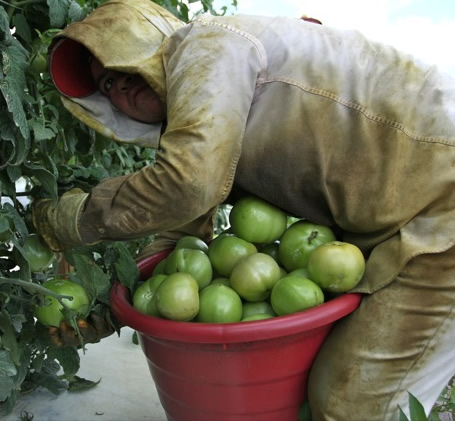 |
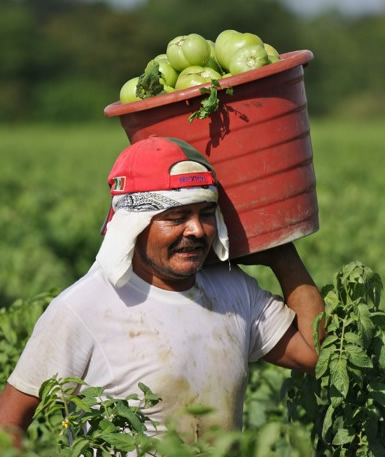 |
2011:
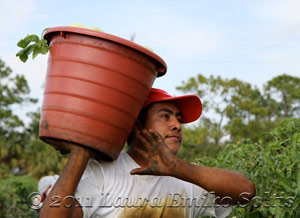 |
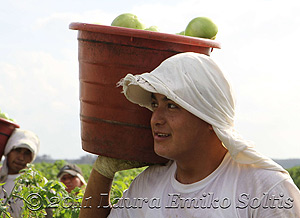 |
The elimination of the “copete” on the participating farms this season has had three very real, very important, effects:
- It has resulted in a de facto wage increase of approximately 10%;
- It has eliminated a recurring point of potential conflict between workers and dumpers that, in the past, provided an opportunity for the exercise of arbitrary authority and regularly resulted in disputes, firings, and even physical confrontations;
- Workers have reported a stronger sense of respect from their immediate, field-level supervisors.
This change in an age-old practice has been one of the most immediate and tangible benefits produced already by the Fair Food Program, and we look forward to its extension throughout the rest of the industry next season, which starts in November of this year.
